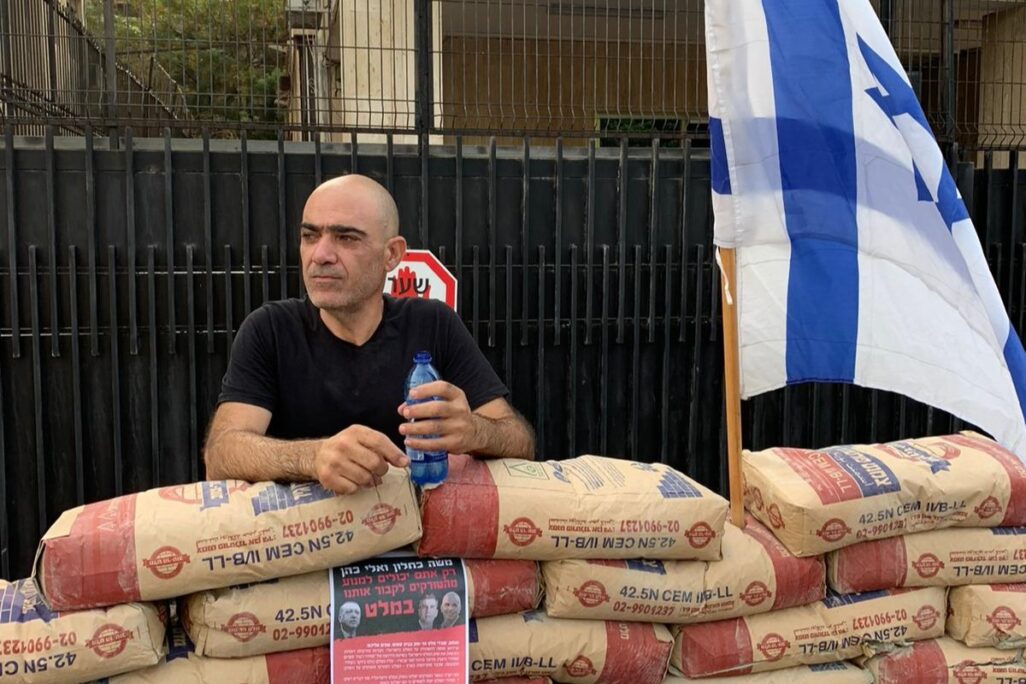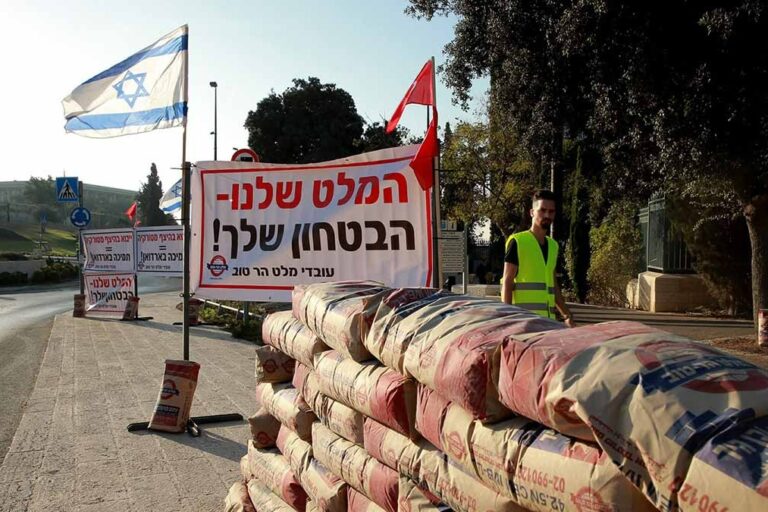
In the wake of Turkish President Recep Tayyip Erdoğan’s decision earlier this month to stop exporting many types of construction material to Israel, workers from one of Israel’s closed cement factories are lamenting Israel’s decision to rely on exports rather than production for crucial goods like cement.
“When I see Erdoğan say he won’t sell cement to Israel, I don’t know whether to laugh or cry, and I’m mostly seething with anger,” Amir Asraf, who headed the Hartuv cement factory workers’ union and led the struggle against its closure, told Davar. “We were screaming that this was exactly what was going to happen, and no one listened to us.”
The Hartuv cement factory near Beit Shemesh was closed in January 2023, after years of warnings from management that Turkey was flooding Israel with artificially cheap imported cement. The cement was sold to Israel at a lower price than it was sold for in Israel as part of an effort to take over the Israeli market and dismantle competitors, chiefly local manufacturers.

Indeed, while in the past the Israeli economy produced about 90% of the cement for construction in Israel, today the only remaining factory in Israel, the Nesher cement plant in Ramle, produces only about 40% of the cement used in Israel. The rest is imported, mostly from Turkey.
“Cement is a strategic product,” Asraf said. “If we can’t produce it, we’re in the hands of others. Specifically, we are in the hands of Erdoğan, who hates us. And it was also a plan of the Turks—to weaken the local industry and grab us by the balls, so that they could then raise prices, and decide how much cement they send us, if any. I always saw it as a security issue, and they just didn't listen to us. They just kept telling us, ‘Competition, competition.’”
“We cried out, we went to the Knesset, we approached the ministers and nothing helped,” he continued. “The small workers were not heard. Now I see [Foreign Affairs Minister] Israel Katz preaching morality to Erdoğan and telling him that he is ‘sacrificing the economic interests of the people of Turkey.’ Maybe Katz and his party, which has been in power for 15 years, should first start worrying about our—the citizens of Israel—economic interests instead."
Asraf recalled that in June 2020, Katz, as Finance Minister, vetoed then-Economy Minister Amir Peretz’s attempt to increase the tax on cement imports from Turkey in order to protect Israeli industry. He says that the factory’s closure, and the job loss of the factory’s workers, are the result of that economic policy.
“There were 70 direct workers here and another 40 contract workers. Over 100 families, plus all the suppliers. We all ended up going home because of this policy, people who had worked here for decades, some of whom are now also on reserve duty defending the state of Israel. Today, where the factory that built Israel for decades was, there are now more malls,” he said.
The policy, unfortunately, has not changed since the factory closed. “If they don’t strengthen Nesher and limit these wild imports, Nesher will also shut down in the end, and then the entire state of Israel will depend on Turkey, Greece and the surrounding Arab countries,” Asraf warned. “My heart aches for our Israeli industry that is being liquidated [and also] for agriculture. If we continue in this direction, it will be doomed, and I very much hope that Erdoğan’s conduct now will serve as a wake-up call to the public and its elected officials. We have to change policy.”
The dependence on increasing imports is also problematic for Dafna Kaplansky, director of the Foreign Trade and International Relations Division of the Manufacturers Association of Israel: “This is a hostile step,” Kaplansky said. “We always believed that politics should be separated from economics, and that’s what we’ve always done. Unfortunately, on the Turkish side they did the opposite. I don’t know what Erdoğan’s real intentions are, but it’s clear that this reinforces our long-standing message that Israeli industry needs to be strengthened, how important the economic independence of the state of Israel is, and how important it is that we do not depend on imports, especially from countries that are not always friendly.”
The Manufacturers Association of Israel is still examining the significance of the announcement against precise data, in order to formulate a position and a plan of action. “This is another example of how important strengthening Israeli industry is, particularly in times of crisis,” Kaplansky said.






